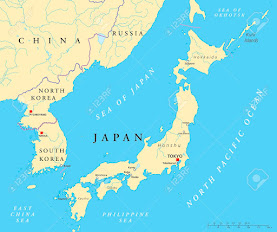North Korea's political history since the war has been marked by a distinctive and centralized system of governance. This article provides an overview of North Korea's political evolution, offering insights into its political structure and leadership since the war.
The Kim Dynasty Emerges
Following
the Korean War, North Korea underwent a transformation in its political
leadership. Kim Il-sung emerged as the country's founding leader, establishing
the Democratic People's Republic of Korea (DPRK) in 1948. He became the
country's first president and the central figure in North Korean politics.
Juche Ideology
Kim Il-sung
introduced the Juche ideology, emphasizing self-reliance, independence, and the
absolute leadership of the ruling party. This ideology became the cornerstone
of North Korean political thought and governance.
Single-Party System
North Korea
adopted a single-party system, with the Workers' Party of Korea (WPK) as the
only legally recognized political party. The WPK assumed control over all
aspects of governance, including the military and economy.
Kim Jong-il's Era
Upon Kim
Il-sung's death in 1994, his son, Kim Jong-il, succeeded him as the leader of
North Korea. Kim Jong-il continued his father's political legacy, maintaining
the centralized system of governance and promoting Juche ideology.
Kim Jong-un's Leadership
Following
Kim Jong-il's death in 2011, his son, Kim Jong-un, assumed leadership. Kim
Jong-un continued to consolidate power, emphasizing the military, and
reinforcing the country's isolationist stance.
Military-First Policy
North Korea
implemented a "Military-First" policy, known as Songun, which
prioritized the Korean People's Army in the allocation of resources and
political decision-making.
International Relations
North
Korea's political landscape has been marked by a complex relationship with the
international community, including diplomatic tensions and nuclear
negotiations.
North
Korea's political history since the war reflects its unique path, characterized
by a single-party system, the prominence of the Kim dynasty, and the adherence
to Juche ideology. The centralized system of governance continues to shape
North Korea's political landscape, emphasizing the absolute authority of the
ruling party and its leaders.





0 Comentarios